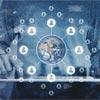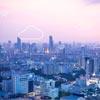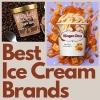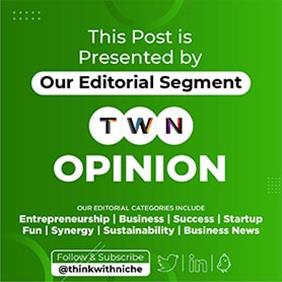The Story of L'Oréal – From Hair Dyes to Cosmetic Giant
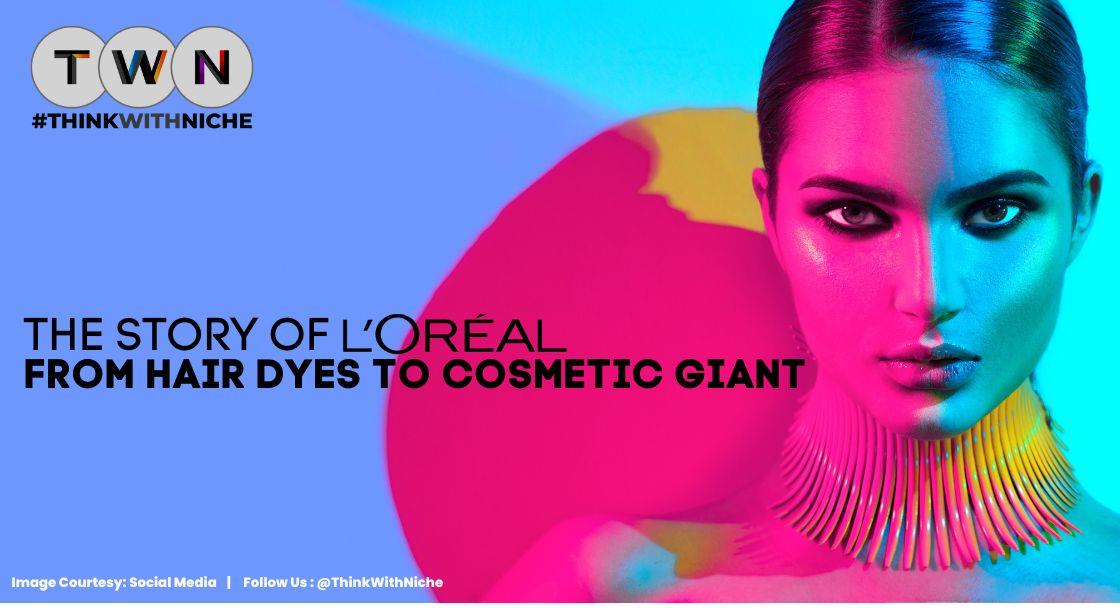
Blog Post
Because you are deserving of it. L'Oréal, the biggest cosmetics and beauty company in the world, has one of the closest relationships with consumers. Every day, millions of people are made to feel beautiful and pampered by L'Oréal's 28 worldwide brands, which also include Lancôme, Maybelline, and Redken. The company maintains coordination among activities and interacts with customers in order to safeguard and market these important brands. Numerous acquisitions were a part of L'Oréal's phenomenal growth, but this success also presented some communication challenges. In order to help the Professional Products Division share data and manage brands.
It is a story of a company that was just started with the idea of working locally but soon rose to fame and became the leading industry in its field. Let’s start the Story of L'Oréal – From Hair Dyes to Cosmetic Giant.
When you wash your hair or apply makeup, you keep in mind what product you are using and to which company it belongs. One name always pops up despite new competitors in the market every year. The name is L'Oréal. Every single person must’ve heard of this beauty brand but might not be aware of its history. From being a local hair dye company to a world-leading cosmetic brand, there’s a lot you can learn from the growth and success story of L'Oréal. Let’s get right into it.
L'Oréal or L'Oréal Paris comes from the heart of France and is the largest cosmetic company and has acted in the production of cosmetic miracles. It works in the beauty field and focuses on hair colors, sun protection, skincare, perfume, makeup, and hair care. This company created the name we know today because of its zeal for innovation in the field of cosmetics. The company works hard to counter the traditional cosmetic culture and to give the experience you never had.
The Story of L'Oréal – From Hair Dyes to Cosmetic Giant
History of L'Oréal
The idea was laid back in 1909 by a young French chemist of German descent. His name was Eugène Paul Louis Schueller. He developed a hair dye and named it Oréale or Auréale. The formula for the dye was his, and he formulated the whole dye himself. He used to make all his products by himself (one of the earlier entrepreneurs, I must say). He then decided that he should sell his hair dye to the local hairdressers in Paris. The response was good, and people liked his dye. He sold the dye locally for ten years and was getting an amazing response. Motivated, he registered the company in 1919. The name of his company was Safe Hair Dye Company of France. Soon the company was known by its existing name L'Oréal. They have certain guiding principles, research, and innovation in the beauty field. Schueller employed three chemists to expand his hair dye business, and soon they were a team of 100 in 1950. In 34 years, they had 1000 members in the team and 88,000 team members in 2020.
With the growth in the hair dye industry, L'Oréal was slowly and steadily making its name and was known all over France. After getting hold of the hair dye industry, L'Oréal branched itself into the cleansing and beauty industry. With such branches in hand now, the company currently markets over 500 brands under its name and has thousands of individual products in every sector falling under the beauty industry. The products are available on different channels and can be bought at various places. You can also order the products and get them delivered easily. This puts the company on the positive side in the minds of consumers.
L'Oréal had tried its hands in media also. It controlled a film company called Paravison from 1988 to 1989. Soon the company was acquired by Studio Canal in 1994.
Before the acquisition of a media company, L'Oréal had acquired a pharma company to try its luck in the field of pharmaceuticals. In 1973, L'Oréal acquired Synthelabo. Later, Synthelabo merged with Sanofi in 1999 and became Sanofi-Synthelabo. In 2004, it merged with Aventis and became Sanofi-Aventis. Being a giant in the cosmetic industry, L'Oréal acquired The Body Shop in 2006 for 562 million Pounds.
By 2014, L'Oréal had acquired almost 11 beauty giants all over the world. It shows how successful a hair-dying company has become since its foundation.
Corporate Social Responsibility of L'Oréal
Being a world-leading industry in the beauty field, L'Oréal has certain social responsibilities to adhere to. Hence, the tagline ‘Because you’re worth it.’ The company works with a group-wide sustainability plan. In 2013, the company announced its plan for this sustainability. The plan is called “Sharing Beauty with All.” The company is committed to decreasing the environmental impact of the products they have been selling. The company wants to have a positive impact on the environment and society. L'Oréal is giving its employees access to healthcare, social protection, and the required training to excel globally. In 2021, the company has announced its new goals under the plan, “L'Oréal for the Future.” It has a series of goals that L'Oréal wants to achieve by the year 2030.
L'Oréal has a strict policy against animal testing. They do not test on animals. Instead, they work on regenerative skins developed in labs to get the results and spare the lives of innocent animals. In China, it is mandatory to conduct animal testing before humans use cosmetics which makes working difficult in the country. The Body shop, now a subsidiary of L'Oréal, is against animal testing, and hence, they do not sell in China. It shows how well the company is doing in terms of its global responsibility. For this, L'Oréal invested 900 million euros in finding alternatives that can be used instead of animals.
Apart from this, the company joined hands with a French biochemistry Pioneer called Carbios in 2020. The main aim of the collaboration is to discover a method and use it to dissolve plastic with the help of enzymes.
Since L'Oreal started the "Look Good... Feel Better" project 16 years ago, charity around it has impacted women's fight against cancer. The company declared a -37.1% reduction in CO2 emissions, a 24% decrease in water consumption, and a -22% decrease in transportable waste in 2012 as part of its commitment to CSR. Climate Counts recognized the company for its environmental practices and accomplishments. Because You're Worth It, L'Oreal's current slogan, has had a significant impact on its customers by elevating their sense of self-worth and self-respect. A major achievement in brand awareness strategy was the transition from "Because I'm worth it" to "Because you're worth it" and then back to "Because we're worth it." Therefore, the company has improved both economically and consumers' pride by spreading a positive message.
Also Read: Success Story Of Nykaa- Most Successful Beauty Products Company
Research and innovations by L'Oréal
Episkin
It is similar to what it sounds like. It is the reconstructive skin model that was developed by the engineers working at L'Oréal in France. It is the alternative L'Oréal was looking for, for a long time. It was a breakthrough that could save animals from being used as test subjects. How are they made? The leftover cells from a surgery (breast surgery) are collected and grown in the lab (in vitro). They are grown to form sheets of skin that can be used for testing. In 2016, the Episkin division of the company acquired SkinEthic. SkinEthic is a tissue engineering company.
3D printing of human skin
3D printing is taking up most of the technological areas. Now we see its usage by a cosmetic giant. In 2015, L'Oréal joined hands with Organovo, a bioprinting startup. The aim was to make a living, breathing 3D dermal skin on which tests can be conducted for toxicity and efficacy.
ModiFace
L'Oréal also stepped into the field of augmented reality. In 2016, they acquired ModiFace which mastered AR to allow users to try makeup and hairstyles online. In 2020, they introduced a feature called ‘Signature faces.’ It was an online tool to try new makeup on various social media platforms. The pandemic helped this feature escalate on Instagram, Facebook, Snapchat, and other platforms. People spent hours trying makeup online.
Perso
It is the new venture of L'Oréal. It was expected to be launched this year. It is a small device made by the company that can make custom formulas for different makeup kits for clients. You can make your kit with Perso depending entirely on your skin type. That is something we all need!
L'Oréal is a company that works around the clock to make sustainable changes in society with its products. A cosmetic company fighting against animal testing is something every company should idolize and work on. It was a story of a hair-dying company that rose to fame and became a cosmetic giant in a few decades.
Apart from beauty products, the company has various research and development centers all over the world.
L'Oreal has six global research and development centers located in France, the United States, Japan, China, and India. A seventh facility will shortly be built in New Jersey. L'Oreal holds holdings in the movie business Paravision in addition to its operations in the cosmetics and pharmaceutical industries.
- L'Oréal R&D Center, Aulnay, France.
- L'Oréal R&D Center, Chevilly, France.
- L'Oréal R&D Center, Clark, New Jersey, USA.
- L'Oréal R&D Center, Kawasaki, Kanagawa Prefecture, Japan.
- L'Oréal R&D Center, Shanghai, China.
- L'Oréal R&D Center, Mumbai, India.
L'Oréal is planning to open its new R&D facility in Berkley Heights, New Jersey, USA.
You May Like
EDITOR’S CHOICE



